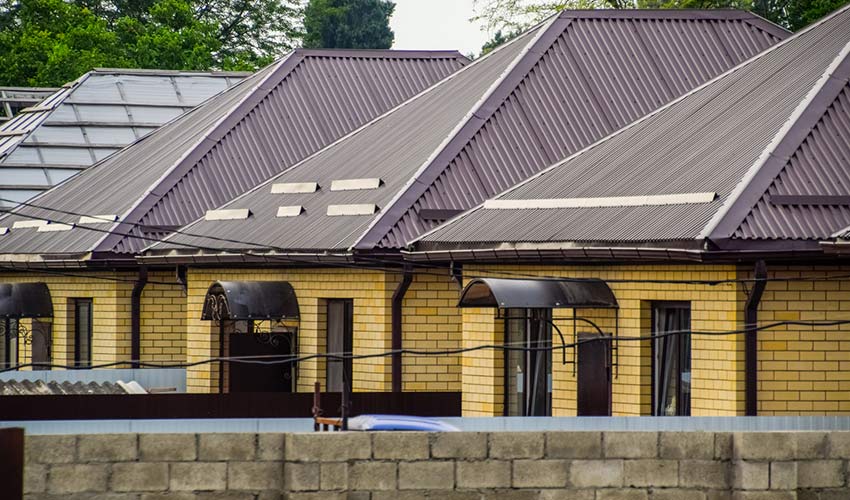
Understanding the various types of work that an electrician does is crucial when you are considering a career in this field. There are many types of electricians. These include residential electricians and power grid electricians. Here are some examples of various electrician jobs. Read on to find out about specific types of jobs. You might even want to consider becoming an electrician yourself!
Electricians
Electrical engineers are electrical workers, as the name implies. As they are required to undertake large projects and invest large sums of money, this field can be extremely challenging. The work-life balance is often difficult because of this high competition. Here are some tips on choosing an electrical engineer career. If you're interested in this field, consider taking on an apprenticeship. This can help you start a rewarding and lucrative career.
Electrical engineers are experts in developing electrical systems. They oversee the production of electrical equipment. An array of projects are undertaken by electrical engineers, ranging from small-scale energy transmission to large-scale. They also help to improve and design existing electric systems. An array of skills is required to design products that improve quality of life and make the world better. The job is varied and interesting because of the vast nature of their work.

Telecommunications electricians
Telecommunications technicians do all sorts of work. They can configure equipment or train users in connection. While some work alone, most must be on call for weekends or overtime. The danger of lightning and mice eating cables makes it essential to maintain your system, but even a careless worker can spill coffee on a valuable outlet. Luckily, there are many options to get your education and training to become a telecommunications electrician.
Telecommunication installers work in every part of the country, including urban areas. Some cables are run overhead from telephone poles and others across branch lines. This job requires a combination of hands-on experience and classroom learning, and it is often necessary to spend at least three to five years working as an apprentice. Telecommunication electricians often receive the same training that electrical linemen. It is best to obtain a bachelor's in order to be a telecom installer.
Industrial electricians
Industrial electricians work in electrical installations and control. They install new equipment, maintain existing systems and repair or modify machines. They communicate with clients and help to understand the root cause of electrical system issues. They might be required to replace critical electrical equipment or to prepare maintenance reports for industrial facilities. These reports can be used to verify compliance and ensure proper maintenance of electrical systems.
While most electricians work 40 hour weeks, industrial electricians often have to be available for overtime or inclement weather. They may work long hours and sacrifice family time. Many industrial electricians work overtime. They may also be required to work on weekends, holidays, or during system outages. As you gain experience, the initial salary for this job will rise. You can expect to work at least 40 hours per week and make a good living by combining your education and training.

Residential electricians
Read on to find out what residential electricians do. Residential electricians usually work in larger commercial buildings. However, commercial electricians tend to work with higher voltage systems like 120V or240V. Residential electricians may use thin gauge cabling and fewer insulation than their commercial counterparts. They may also require more insulation for wiring in a house. Many residential electricians use both sheathing or plastic conduits. Commercial electricians can use larger wires.
Many other tasks can be done by residential electricians. They can install an electric service in a home, run conduit, and use wiring protection. They can also install circuit breakers boxes and other residential electric systems. They could also be involved in the design of electrical systems, including the placement and maintenance of heating and air conditioning units. They may even be involved when it comes to new construction. They may be involved in the design and installation of circuit breaker boxes, as well as other electrical systems.
FAQ
Who has to pay for the service?
The SCA will specify which party is responsible to pay for the service. The service provider may be entitled to compensation if it isn't paid in full.
What is the best way to get a service contract?
You can get a standard SCA form at your local government. You could also use our online quotation generator to learn more about your requirements, and then send us details so that we can get in touch with you for further information.
Where can I obtain more information about building permits
Ask your local government office (for instance, NSW Local Government Association), or talk to your real estate agent. These authorities should be able advise you on the steps to take in order to get permission to build.
Is there a limit to the amount of money I can spend on the project?
No. Your SCA sets an upper limit on the total cost of the project. But, it is possible to negotiate a lower cost with the contractor.
Statistics
- (1) Except as provided in paragraphs (a)(4) and (a)(8) of this section, if the estimated amount of the contract or subcontract is $10 million or more, the contracting officer shall request clearance from the appropriate OFCCP regional office before- (acquisition.gov)
- (v) Place or places of performance of the prime contract and first-tier subcontracts estimated at $10 million or more, if known. (acquisition.gov)
- While we offer all our high-quality services at competitive prices, we know that many who need our services are on fixed incomes, so we offer a 10 percent discount for seniors and military members. (homeservicecontractorsinc.com)
- (ii) Name, address, and telephone number of each proposed first-tier subcontractor with a proposed subcontract estimated at $10 million or more. (acquisition.gov)
- (3) The contracting officer may provide for a contract price adjustment based solely on a percentage rate determined by the contracting officer using a published economic indicator incorporated into the solicitation and resulting contract. (acquisition.gov)
External Links
How To
What is the difference between service agreements and contracts?
A service agreement describes an agreement in which a provider offers to provide services for a client. It creates a binding obligation for both the provider and customer. The term "service" can be used to refer to the products, information, advice, or other services offered by a company.
A contract is a legally binding document which outlines the terms of a business partnership. You can purchase a product at a retailer and a contract will be created. The reason you are required to pay later is because of the obligation you have to buy it. If you accept employment you have entered into an agreement with your employer.
The service agreement does not require any documentation. Written service agreements are rarely used in practice. Verbal agreements are more common.
However, a service agreement has several advantages over a contract:
-
A service agreement is flexibler than a contractual contract.
-
It allows a service provider to change its mind without penalty.
-
It allows the service to have greater control over how they deliver the service.
-
It gives a clear record as to what was promised.
-
It is easier for a service provider to be sued.
-
A service agreement is more affordable than a contract.
-
It is less likely to result in litigation.
-
It's easier to end a service agreement than a contract arrangement.
-
It is more simple to amend a service agreement than a standard contract.
-
It is possible to use a service agreement for an ongoing relationship.
-
It is possible to divide the cost of drafting service agreements with third parties.
-
If you are drafting a Service Agreement, it is possible for you to include a clause that requires arbitration.
-
It is possible for provisions to be added regarding confidentiality, proprietary rights, non-disclosure etc.
-
It is possible to specify the duration of the contract (e.g., one year).
-
It is possible to subject the service agreement to a condition precedent.
-
It is possible for a service provider to be held liable for only negligence, gross negligence, and/or fraud.
-
It is possible limit liability for consequential damages.
-
It is possible to permit the service provider or customer to enter into another agreement.
-
In certain situations, notice can be given of termination.
-
You can ask the service provider for a warranty.